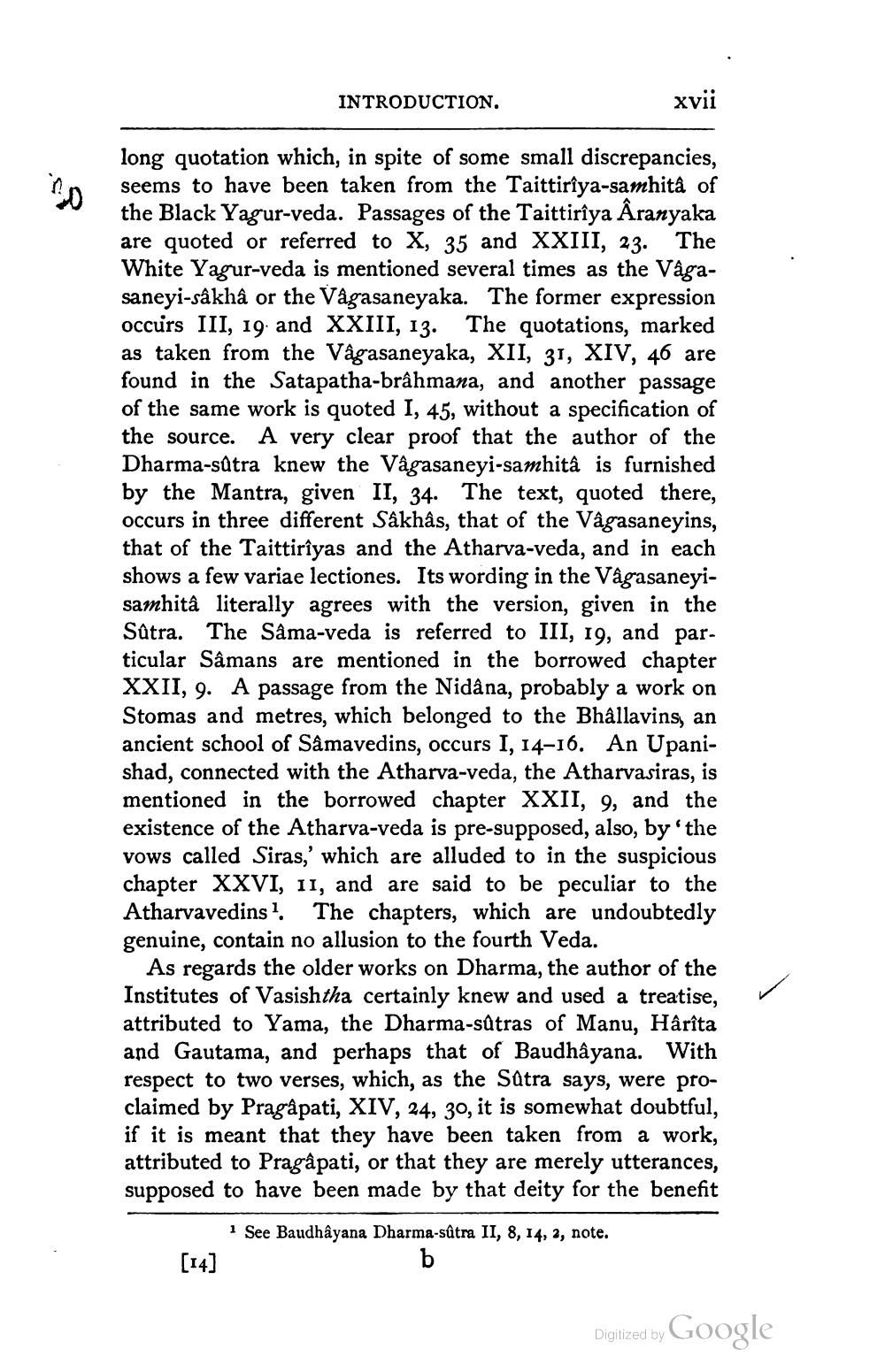________________
INTRODUCTION.
xvii
long quotation which, in spite of some small discrepancies, seems to have been taken from the Taittirîya-samhita of the Black Yągur-veda. Passages of the Taittirîya Aranyaka are quoted or referred to X, 35 and XXIII, 23. The White Yagur-veda is mentioned several times as the Vagasaneyi-sâkhâ or the Vågasaneyaka. The former expression occurs III, 19. and XXIII, 13. The quotations, marked as taken from the Vâgasaneyaka, XII, 31, XIV, 46 are found in the Satapatha-brâhmana, and another passage of the same work is quoted I, 45, without a specification of the source. A very clear proof that the author of the Dharma-sútra knew the Vâgasaneyi-samhità is furnished by the Mantra, given II, 34. The text, quoted there, occurs in three different Sâkhâs, that of the Vâgasaneyins, that of the Taittirîyas and the Atharva-veda, and in each shows a few variae lectiones. Its wording in the Vâgasaneyisamhitâ literally agrees with the version, given in the Satra. The Sâma-veda is referred to III, 19, and particular Sâmans are mentioned in the borrowed chapter XXII, 9. A passage from the Nidâna, probably a work on Stomas and metres, which belonged to the Bhâllavins, an ancient school of Sâmavedins, occurs I, 14-16. An Upanishad, connected with the Atharva-veda, the Atharvasiras, is mentioned in the borrowed chapter XXII, 9, and the existence of the Atharva-veda is pre-supposed, also, by the vows called Siras,' which are alluded to in the suspicious chapter XXVI, II, and are said to be peculiar to the Atharvavedins. The chapters, which are undoubtedly genuine, contain no allusion to the fourth Veda.
As regards the older works on Dharma, the author of the Institutes of Vasishtha certainly knew and used a treatise, attributed to Yama, the Dharma-sútras of Manu, Hârîta and Gautama, and perhaps that of Baudhâyana. With respect to two verses, which, as the Satra says, were proclaimed by Pragâpati, XIV, 24, 30, it is somewhat doubtful, if it is meant that they have been taken from a work, attributed to Pragâpati, or that they are merely utterances, supposed to have been made by that deity for the benefit
1 See Baudhầyana Dharma-sútra II, 8, 14, 2, note.
[14]
Digitized by Google




